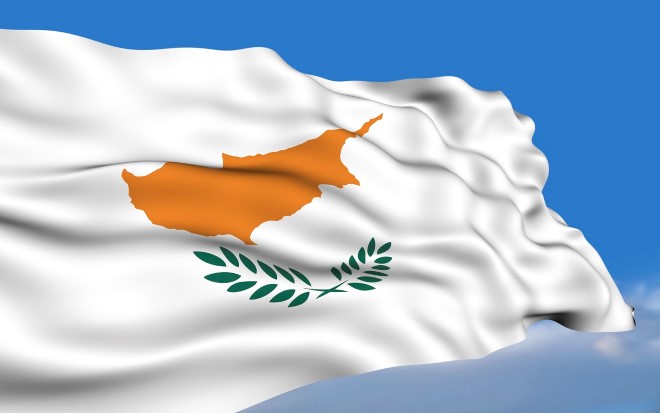INTERNATIONAL EXPERT PANEL
CONVENED BY THE COMMITTEE FOR A EUROPEAN SOLUTION IN CYPRUS
Preamble
1. The purpose of this Report, prepared by an International Expert Panel, is to seek a just Cyprus settlement providing for the peaceful and prosperous future of all the people of the island. In order to do this, one must apply the key principles drawn from international and European law which apply in the settlement of international disputes, including disputes concerning members of the European Union. Such principles lie at the heart of international and European law. Failure to respect such principles is likely not only to prejudice the success of any particular settlement plan by internalising contradictions with international law and thus weakening its sustainability, but also to constitute a destabilising element for the future. The precedent of a political settlement contrary to accepted international and European legal principles may well be resorted to in other dispute situations with serious consequences for the stability of the international order.
2. The fundamental principles of international and European law offer a unique guide and methodology by which to initiate and successfully conclude a process leading to a Cyprus settlement within the framework of a new and genuinely Cypriot Constitution in accordance with the right of self-determination. This is at the very core of a European solution for Cyprus, consistent with international and European law.
3. The solution of the Cyprus problem must be found by respecting and applying the fundamental principles on which international law and the European Union are founded: these are in brief, the peaceful settlement of disputes; the sovereignty, independence and equality of states; the prohibition of aggression and the non-recognition of its consequences; and respect for human rights, liberty, democracy and the rule of law. Both the present state of affairs in Cyprus and the terms of the current Annan Plan are inconsistent with these fundamental principles. It is also essential to arrive at a solution that fully respects the need for the reconciliation of, and cooperation between, the communities and all relevant parties.
4. The European Union is called upon to seize this historic opportunity and to assume its special responsibility for actively helping to put in motion a process of constitution-making that will finally allow the Republic of Cyprus, as a member state, to recover full sovereignty and independence and to establish peacefully a constitutional order respecting the above mentioned principles, and based on full respect for diversity.
Basic facts
5. The Republic of Cyprus came to independence in 1960 by virtue of a series of international agreements. However, unlike other decolonised territories, it was subject to Treaty of Guarantee provisions in favour of the United Kingdom, Turkey and Greece. In 1974, Turkey, invoking the coup by the Greek Junta against the legitimate Cypriot government of Archbishop Makarios, invaded and proceeded to occupy northern Cyprus. This initial action, however, hardened into a prolonged and continuing occupation which has now continued for over 30 years and which has involved a series of human rights violations as attested by the organs of the European Convention of Human Right.[1] Since 1974, Cyprus has been de facto divided into the Republic of Cyprus recognized by the international community and the “Turkish Republic of Northern Cyprus”, an entity[2] declared invalid by UN Security Council resolutions 541 (1983) and 550 (1984) and recognized and sustained only by Turkey. While roughly half of the Turkish Cypriot community has emigrated since the 1974 events, mainly to the United Kingdom, more than 120,000 Turkish settlers are now living in northern Cyprus, transforming the Turkish Cypriots into a minority within their own constituency. The population of Cyprus at present (settlers apart) is 802,500 of whom some 80% are Greek Cypriots, 11% are Turkish Cypriots (this figure was 18% in 1974) and 9% are Armenians, Maronites, Latins and alien residents.
6. The Annan Plan as presented in its final version by the Secretary General of the United Nations on 31 March 2004 provided for a federal state, the “United Republic of Cyprus”, replacing and abolishing the existing Republic of Cyprus and incorporating the occupied northern area. On 24 April 2004, two separate referendums were held. While 65% of the Turkish Cypriot and settler voters in the occupied north accepted the Annan plan, 76% of their Greek Cypriot counterparts in the Republic of Cyprus rejected it. On May 1st, 2004, the Republic of Cyprus as a whole became a member state of the European Union. An Additional Protocol to the Treaty of Accession provided for the temporary suspension of the acquis communautaire in the occupied areas. Negotiations on Turkey’s accession are about to start.
The Fundamental Principles
1. The Peaceful Settlement of Disputes
a) The Meaning of the Principle
7. Article 2 (3) of the United Nations Charter provides that; “All members shall settle their international disputes by peaceful means in such a manner that international peace and security and justice are not endangered”. Accordingly, a settlement that does, or appears likely to, endanger international peace and stability and is inconsistent with accepted standards of justice cannot be consistent with the obligations upon all states laid down in the Charter.[3]
b) Annan Plan Deficiencies
8. The terms of the Annan Plan would in fact have embedded instability into the heart of a Cyprus settlement and would inevitably have led to increasing friction and destabilisation. This is underlined by the provisions concerning the position of foreign nationals with effective control over key areas of governmental activities in Cyprus. Examples where non-Cypriots would (in the event of disagreement between the equal numbers of Greek and Turkish Cypriots) have effective control appeared to include the Reconciliation Commission; the Supreme Court invested with legislative and executive powers; the Central Bank; the Relocation Board; the Property Court and the organs of the Property Board. Bearing in mind the experience of the period 1960-63, the need for stability in the ordering of governmental activities is critical. Further, the foreign nationals concerned would not be democratically accountable to the people of Cyprus.
9. Any settlement of an international dispute must also be in accord with justice. This point is noted below (paragraph 15) in relation to the fundamental principle of respect for human rights.
2. The Sovereignty, Independence and Equality of States
a) The Meaning of the Principle
10. International law, as well as EU law, is founded upon the recognition of independent and sovereign states. Consequential principles include the obligations of non-intervention in the internal affairs of states and respect for the territorial integrity of all states.[4] In addition, the right of self-determination provides that while people within a state have the right to participate in the governance of that state, the free choice of the people of a state, conforming to fundamental international and European values must be respected on the international level.
b) Annan Plan Deficiencies
11. The Annan Plan is founded upon the abolition of the legitimate and recognised Republic of Cyprus. Further, the right of intervention in the internal affairs of Cyprus, reserved to Greece, Turkey and Great Britain as the Guarantor Powers according to the Treaty of Establishment of 16 August 1960 and extended in the Annan Plan to cover the territorial integrity, security and constitutional order of both the federal “United Cyprus Republic” and the constituent states, constitutes a significant limitation on the sovereignty and independence of Cyprus and a challenge to the international and European legal orders. This was underlined by the proposed creation of a Monitoring Committee, composed of representatives of the guarantor powers, the constituent states and the UN, to monitor the implementation of the Annan Plan settlement and with the power to make recommendations. Furthermore, the Annan Plan provided for the permanent demilitarisation and disarmament of the new Cypriot state, thus raising questions as to the right to self-defence.
12. In addition, one notes under the Annan Plan the right of the UK to complete and unimpeded access for any purpose whatsoever to the waters between the Sovereign Base Areas’ waters and the fact that international judicial or third party settlement procedure is expressly forbidden with regard to disputes concerning the Sovereign Base Areas. Such disputes were to be resolved by an arbitrator appointed by the authorities of the Sovereign Base Areas.
- The Prohibition of the Act and Consequences of Aggression
a) The Meaning of the Principle
13. The prohibition of aggression is at the heart of the international legal order. It is enshrined in international law in general terms,[5] in international criminal law,[6] and with regard to specific situations. Prohibiting the consequences of aggression means rejecting the benefits obtained as a result of illegal aggression and is enshrined, for example, in the jus cogens norm of the non-acquisition of title to territory as a result of aggression. In the context of Cyprus, the UN Security Council adopted resolutions 541 (1983) and 550 (1984) declaring the purported “Turkish Republic of Northern Cyprus” to be illegal and calling upon all states not to recognise it.[7] Further, the implantation of settlers from Turkey in an attempt to manipulate the demography of the island of Cyprus runs counter to the principles of international law, especially those relating to self-determination and human rights. In particular, Article 49 of Geneva Convention IV on the Protection of Civilian Persons 1949 (ratified by both Cyprus and Turkey) prohibits the transfer by an occupying power of part of its own civilian population into the occupied territory. It should, of course, be noted that, having established the illegality of the position of the settlers, the question of the future of the settlers and their families is a separate matter to be determined by the parties concerned within the framework of an overall just and fair settlement and in a manner consistent with international and European law.
b) Annan Plan Deficiencies
14. The Annan Plan provided for the legitimisation of acts of the “TRNC” and by extension of the “TRNC” itself. The Plan declared that all acts of any authority on the island of Cyprus (excluding the Sovereign Bases Areas) would be recognised as valid unless the particular act at issue was inconsistent with international law, irrespective of the question of the status of the authority in question. Equally seriously, the provisions of the Plan in relation to the settlers from Turkey were hardly consistent with international law.[8] First, the Plan permitted the settlers to vote in the Turkish Cypriot referendum, even though the former now constitute a majority of inhabitants of the north and even though this recognised as a decisive constitutional force an illegal consequence of an illegal aggression. The UN has not envisaged settlers voting in internal self-determination elections in other situations, such as the West Bank and Gaza, Western Sahara and East Timor. Secondly, the status of the settlers is legitimised in addition by permitting large numbers of them to stay in the north. It goes without saying that in any solution to the dispute, the settlers must be treated in a way which is consistent with international human rights law. As such the position of the settlers is different from that of the substantial number of Turkish troops in occupied northern Cyprus. The presence of such troops in the current situation clearly constitutes an affront to the principles of democracy and human rights and a symbol of aggression and they will need to be withdrawn.
- Respect for Human Rights
a) The Meaning of the Principle
15. Respect for human rights requires the government to promote and fully to respect the fundamental rights and freedoms granted to the individuals by international conventions, the European legal order and national constitutions. Human rights play a critical role in international law and in European law. The European Convention on Human Rights binds Cyprus and Turkey. The European Court of Human Rights has held on several occasions that, since 1974, Turkey is directly responsible for continuing violations of basic fundamental rights by occupying the Northern part of Cyprus, by preventing displaced Greek Cypriot citizens from returning to their homes and property or from having access to and enjoyment of them, by not investigating the fate of thousands of still missing persons and by failure to protect freedom of religion and freedom of expression. These decisions, unprecedented in scope and gravity, have still not been fully implemented.[9] Further, the rights enshrined in the European Convention constitute fundamental principles of the European Union, which itself is based upon the principles of liberty, democracy, respect for human rights and rule of law.[10] The European legal order, therefore, both through the European Convention of Human Rights and the acquis communautaire, provides the most stringent and efficient system of protection of human and minority rights worldwide. Moreover, both Cyprus and Turkey are parties to the International Covenant on Civil and Political Rights, article 1 of which lays down the right of self-determination, and to the International Convention on the Elimination of All Forms of Racial Discrimination.
b) Annan Plan Deficiencies
16. Under the Annan Plan, serious restrictions of political and civil rights, of freedom of residence, breaches of the prohibition of racial discrimination and severe violations of property rights and of the right to respect of one’s home would be maintained and even perpetuated for all Cypriot citizens during several decades and in certain cases permanently (eg. freedom to chose one’s residence and the right to return to one’s home). The question of settlers has been addressed above (paragraph 14). The Annan Plan would have prevented the right of all displaced Greek Cypriots from returning to their homes and would have significantly limited the right of Greek Cypriots who own property in the north from recovering their property.[11] Further, the Annan Plan sought to deny the right of recourse to the European Court of Human Rights for property owners deprived of their rights (as determined by the Court) by the expedient of declaring the “United Republic of Cyprus” the appropriate respondent state, and thus absolving Turkey, and stating that existing applications should be struck out on the grounds that under the Plan adequate domestic remedies had been provided for. Parallel to this, Article 6 of Annex IX of the Foundation Agreement contained in the Annan Plan provided that the EU be requested to endorse the plan as accepted by the parties and that this would result in the adoption of primary law. The implication of this would be in essence the prevention of the EU’s Court of Justice from challenging the plan on the grounds of violating the fundamental principles of the EU.
- Democracy
a) The Meaning of the Principle
17. Democracy refers to the establishment and continued existence of a genuinely representative government responsive to the people. It requires that the basic rules establishing and organizing the state and its relationship with society be accepted by the citizens. It further requires full respect of the will of the people as expressed by the voters and/or their legitimate representatives. Democracy is founded on majority rule, in full recognition and application of individual, minority and group rights, as appropriate. The principle of democracy is an increasingly important part of international law, and at the very heart of European law. Article 3 of the Statute of the Council of Europe refers to pluralist democracy, respect for human rights and the rule of law as principles of the Council system,[12] while article 6 of the Treaty on European Union declares the principles of liberty, democracy, respect for human rights and the rule of law as founding principles of the Union.[13]
b) Annan Plan Deficiencies
18. The Annan Plan process whereby agreements, constitutions and laws are sought to be imposed on an independent state without being the result of any democratic legislative process or dialogue cannot be consistent with the principle of democracy. Neither can strict reliance on arithmetic equality between two demographically unequal communities.[14] A constitutional and institutional framework that requires mutual consent of the representatives of both ethnic communities on all levels of government and in each one of the three traditional powers (legislative, executive and judiciary) reserves a permanent right of veto to both, majority and minority. Leaving the final decision in case of stalemate to foreign citizens in such critical organs as the Supreme Court and others[15] is in stark contradiction to the principle of democracy.
19. On 24 April 2004, 76% of the voters of the Republic of Cyprus in the government controlled area rejected the Annan Plan. This decision must be accepted by all as a valid exercise of democracy and of the right to self-determination.
- The Rule of Law
a) The Meaning of the Principle
20. The rule of law in international law provides that all official activities must be undertaken in a way that is consistent with legal principles. It further means that legal processes must be established and respected in order for legal principles to operate effectively, so that, for example, the principle of due process is critical. As previously noted (paragraph 15), both the Council of Europe and the European Union are founded upon inter alia the principle of the rule of law.
21. There can be no international rule of law in a territory illegally occupied by a foreign power. Indeed, the fact that a member state of the European Union is prevented from exercising its sovereignty over part of its internationally recognised territory challenges the reality of the European rule of law itself.
b) Annan Plan Deficiencies
22. The Annan Plan proposed the replacement of the Republic of Cyprus by a new state that would with great difficulty have been able to provide for a stable government, since instability would have been embedded into it, as noted above. In addition, the restrictions on human rights and the ability to pursue them freely pursuant to the European Convention on Human Rights and under the European Union, and the general principles of international law including those norms derived from international treaties binding on Cyprus (e.g. the International Covenants on Human Rights) would have severely challenged notions of due process and the rule of law.
The Way Forward: A Constitutional Convention for Cyprus
23. Based on the 1960 Constitution, the Republic of Cyprus is the only internationally recognized and legal government of the island. Its accession to the European Union has put it under the protection of the latter, so that any solution of the Cyprus problem must commence with the existing institutions and legal order of the Republic of Cyprus as accepted by its people and internationally legitimised. From here, ways and means must be found to adapt the existing institutions and law adequately, taking into account the will of the people as a whole including all communities, in order to recover democratic rule and full sovereignty in the internationally recognised territory of the Republic.
24. A democratic process of autonomous constitution-making consisting of several steps should enable all the people of Cyprus to overcome the present stalemate and to find means and measures that will eventually bring about re-unification and reconciliation consistent with the fundamental principles noted above. The Constitutional Convention as an instrument of democratic constitution making has been successfully used, particularly in the decolonisation process. Constitution drafting must be integrated in, and not separated from, the democratic political process.
25. A Constitutional Convention for Cyprus, democratically elected or designated so as to reflect appropriately the will of the voters and the aspirations of civil society of the different communities of the island as a whole, should have the sole responsibility for drafting and adopting a new Constitution for Cyprus, building on, and eventually amending or replacing, the existing 1960 Constitution of the Republic of Cyprus.
26. The members of the Constitutional Convention should have complete liberty and responsibility for choosing whatever political system they may prefer, whether presidential, parliamentary or combinations thereof; for finding territorial arrangements by an appropriate decentralization scheme – in regions, districts, communes or whatever – and for shaping procedures that will be able to protect efficiently minority and human rights, in the interest of the people of all the communities in Cyprus. Experts both from within and from outside Cyprus may be asked to give advice and assistance to the Convention or its members. The only legal limits of the Convention’s sovereign constitutional power are strict compliance with European constitutional principles and the acquis communautaire, and international human rights and minority protection standards derived from international law and from the European Convention on Human Rights and other European instruments.[16]
27. The new Constitution as framed by the Convention should be submitted to separate and simultaneous referendums to be held on both parts of the island, according to the April 24, 2004 experience.[17] Only the people of Cyprus can bring about the legitimacy essential for a new beginning. Any solution of the Cyprus problem must be legal and legitimate and must build on the only existing constitutional scheme that is recognized by the European Union and the international community, and that is the 1960 Constitution of the Republic of Cyprus. The procedures regulating the election or designation of the Constitutional Convention, its composition and functioning, as well as the holding of the constitutional referendums will have to be provided for by amendments to the 1960 Constitution. It is further proposed that the Constitutional Convention process take place under European Union auspices.
Recommendations
28. The International Expert Panel seeks a fair and equitable Cyprus settlement that allows the communities to achieve reconciliation and a peaceful and prosperous future. It therefore commends the Fundamental Principles of International and European Law as noted above to all relevant international institutions, including the United Nations, the Council of Europe, the Organisation for Security and Cooperation in Europe, but most particularly to the European Union in the light of the historic opportunity presented to it by the recent accession to membership of the Republic of Cyprus and the opening of accession negotiations with Turkey.
29. The International Expert Panel recommends:
a) The acknowledgement of the aforesaid Fundamental Principles by those parties involved in seeking peace, justice and security in Cyprus.
b) The adoption of a Resolution in the European Parliament (and in other pertinent international institutions) reaffirming the Fundamental Principles.
c) The establishment in the European Parliament (and in other pertinent international institutions) of a monitoring mechanism by which the conformity of any proposed Cyprus settlement with the Fundamental Principles may be ensured.
d) The creation of a Constitutional Convention under European Union auspices and on the basis of the 1960 Cyprus Constitution to bring together the parties directly concerned in order to reach a settlement in conformity with the Fundamental Principles.
Conclusion
30. The accession of the Republic of Cyprus to the European Union has fundamentally changed the internal as well as the external aspects of the Cyprus problem. Greek and Turkish Cypriots have now become citizens of the Union, enjoying the rights and subject to the duties provided for in the European legal order. The Republic of Cyprus is a member state and thus one of the “Masters of the Treaties”.
31. Had the Annan Plan been accepted and implemented before accession, that very accession would have rested on shaky legal grounds, as the Union would have integrated a new member state which would not even have signed the accession treaty, while the Republic of Cyprus, which has signed the treaty, would have ceased to exist. Now that accession has become a reality, the abolition of the Republic of Cyprus through a revised Annan Plan is prevented by the very existence of the European Union.
32. The European Union has the historic opportunity and the special responsibility for promoting a new process of democratic constitution making in Cyprus and for convincing all communities to take part in such a process. In so doing, the European Union would ensure the application of its own principles and values, as well as those of international law generally, within the territory of one of its own member-states.
*****
APPENDIX: Article 6 of the Treaty on European Union
“1. The Union is founded on the principles of liberty, democracy, respect for human rights and fundamental freedoms, and the rule of law, principles which are common to the Member States.
2. The Union shall respect fundamental rights, as guaranteed by the European Convention for the Protection of Human Rights and Fundamental Freedoms signed in Rome on 4 November 1950 and as they result from the constitutional traditions common to the Member States, as general principles of Community law.
3. The Union shall respect the national identities of its Member States.
4. The Union shall provide itself with the means necessary to attain its objectives and carry through its policies.”
International Expert Panel
1. Professor Auer Andreas, Switzerland
Professor of Constitutional Law, University of Geneva
2. Professor Bossuyt Mark, Belgium
Professor of International Law, University of Antwerp
3. Professor Burns Peter, Canada
Former Dean of the UBC Law Faculty,
Professor of Law, University of British Columbia, Vancouver
4. Professor Dr. Alfred De Zayas, United States of America
Geneva School of Diplomacy
Former Secretary, UN Human Rights Committee
5. Professor Helmons Silvio-Marcus, Belgium
Emeritus Professor of Universite Catholique de Louvain, Public International Law and Human Rights
6. Professor George Kasimatis, Greece
Emeritus Professor of University of Athens, Constitutional Law
Honorary President of the International Association of Constitutional Law
7. Professor Dr. Dr.h.c. Oberndoerfer Dieter, Germany
Professor Emeritus, Political Science, University of Freiburg
8. Professor Malcolm N Shaw QC, United Kingdom
The Sir Robert Jennings Professor of International Law, University of Leicester
Endnotes
[1] See the European Commission of Human Rights which referred to Turkish violations of the European Convention on Human Rights in the first two Cyprus v Turkey applications, 10 July 1976 and the third application, 4 October 1983 (published by the Committee of Ministers in 1992) and the European Court of Human Rights giving judgment in the fourth Cyprus v Turkey application, 10 May 2001. See also below para. 15.
[2] Referred to by the European Court of Human Rights as a “subordinate local administration” of Turkey, Loizidou v Turkey, decision of 23 February 1995, para. 62.
[3] See also the 1970 Declaration on Principles of International Law Concerning Friendly Relations, resolution 2625 (XXV) and the Manila Declaration on the Peaceful Settlement of International Disputes, resolution 37/590.
[4] See article 2 of the UN Charter and the 1970 Declaration on Principles of International Law Concerning Friendly Relations
[5] See Article 2 (4) of the UN Charter, Chapter VII of the UN Charter and resolution 3314 (XXIX) on the Definition of Aggression.
[6] See the Nuremberg Principles and the Statutes of the War Crimes Tribunals for the Former Yugoslavia and for Rwanda and the International Criminal Court.
[7] See also resolution 83 (13) of the Committee of Ministers of the Council of Europe and the decision of the European Court of Human Rights in the Cyprus v Turkey case, 10 May 2001.
[8] See the Advisory Opinion of the International Court of Justice on the Legal Consequences of the Construction of a Wall in the Occupied Palestinian Territory, 9 July 2004, para. 119 and following.
[9] Most significantly, the decision of the European Court of Human Rights, Cyprus v Turkey, 10 May 2001.
[10] See the Rutili case, 1975, ECR 1219 and article 6 of the Treaty of European Union, 1999 (reproduced in the Appendix to this Report).
[11] This situation would also have been incompatible with numerous UN resolutions on the right to return, see especially the study of the UN Sub-Commission on the Promotion and Protection of Human Rights by Special Rapporteur Awn Shawkat Al Kassawneh on the “Human Rights Dimensions of Population Transfers”, E/CN.4/Sub.2/1997/23.
[12] See also the Charter of Paris, 1990.
[13] Reproduced in the Appendix to this Report. See also the European Community Declaration on the Recognition of New States, 1991.
[14] See above para. 5.
[15] See above para. 8.
[16] For example the Framework Convention for the Protection of National Minorities, 1995, to which Cyprus is a party.
[17] But conducted so as to exclude the competence of Turkish settlers, see above, para. 14.
Eine prinzipientreue Grundlage für eine gerechte und dauerhafte Regelung des Zypernproblems im Einklang mit dem Völkerrecht und der europäischen Rechtsordnung
Une base de principes pour une solution juste et viable du problème chypriote à la lumière du Droit International et Européen











